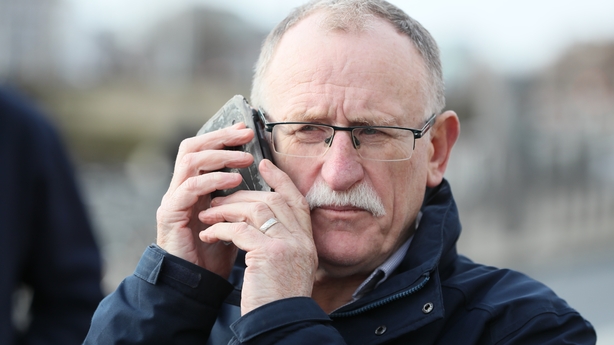By David McCullagh and Donal Byrne
While there were clear differences between the aims and approaches of Irish and British officials, they generally worked well together during 1990. But not always.
In September, the British Ambassador to Ireland, Nicholas Fenn, was summoned to the Department of the Taoiseach by Government Secretary Dermot Nally.
Nally passed on the concern of the Taoiseach at remarks by Margaret Thatcher, which appeared to cast doubt on Irish efforts against the IRA.
Responding to a shooting on Air Chief Marshal Peter Terry and his wife at their home in Staffordshire, Thatcher told an interviewer: "The question is ... whether we can assure ourselves that the Republic is doing all it can to track down terrorists, their sources of weaponry and their stores of weapons".
Nally told Fenn that as the attack at taken place in Britain there wasn't much the Irish authorities could have done about it; that Scotland Yard had paid tribute to the co-operation received from gardaí in other matters; and that remarks such as the prime minister's "could be of assistance only to the Provos and would discourage those working against terrorism".
Ambassador Fenn replied that he was in no way suggesting Irish responsibility for the attack and "gave a personal expression of regret" about what had happened.
He added that he would convey the Taoiseach’s concerns "to the proper place".
Two months later, Nally was again venting at the British at the Taoiseach’s behest.
This time, the row centred on the extradition of IRA bomb-maker Dessie Ellis (now the Sinn Féin TD for Dublin North West).
Ellis had gone on hunger strike to protest against his proposed extradition to Britain, claiming he wouldn’t get a fair trial (in fact, he was eventually acquitted).

His campaign generated considerable international support, and Haughey had attempted to persuade Ellis’s parents to get him to give up his hunger strike until the Supreme Court decided his appeal against extradition.
His father replied that the minute the Supreme Case finished, his son "could be in Baldonnel and on his way to Britain within an hour".
In fact, it took a bit longer than that, because the RAF plane due to transport him was late arriving.
Haughey, evidently feeling under pressure, exploded at the delay and instructed Nally to complain to the British.
This he did, first to Thatcher’s Principal Private Secretary, Charles Powell: "I said that the Taoiseach’s view was that this bungling had to stop - or the other arrangements [about extradition] would".
And then to Ambassador Fenn: "I conveyed the Taoiseach’s views to him also in the strongest terms, pointing to the dangers to the entire process arising from this sort of messing."
The Irish time on the moral high ground didn’t last long, however.
It transpired that the problem was caused in Dublin, because gardaí had failed to ensure that the RAF plane would get the necessary urgent diplomatic clearance when the British Embassy approached the Department of Foreign Affairs.
Powell observed: "Things are not always quite what they seem: but I am sorry for our part in the muddle."
[Based on documents in 2020/17/5 and 2020/17/12]

